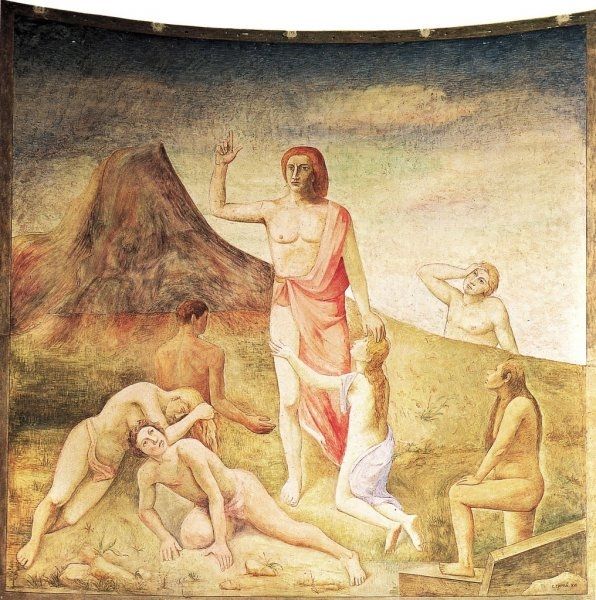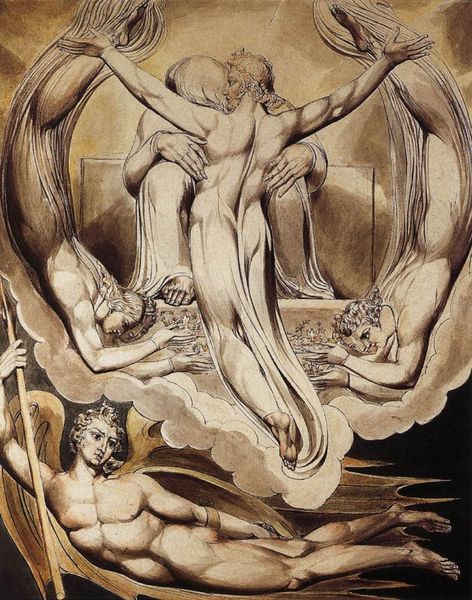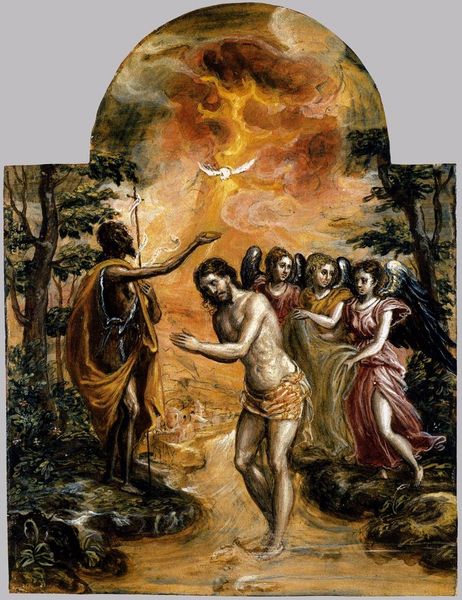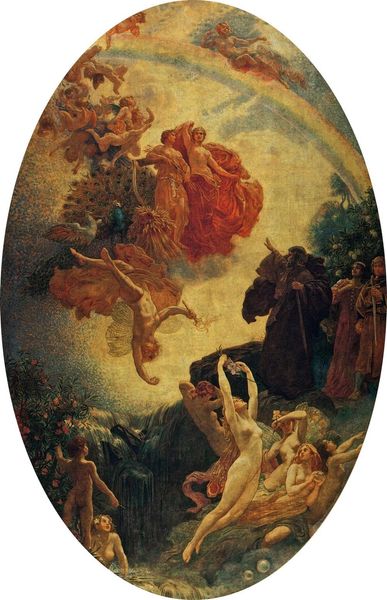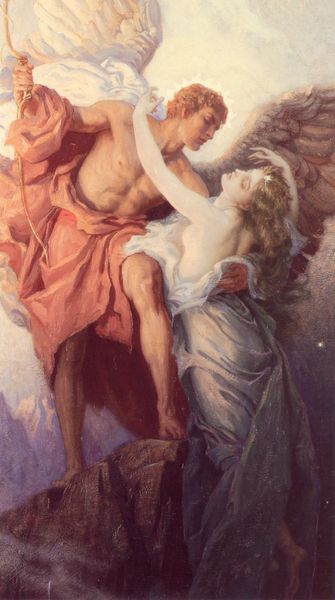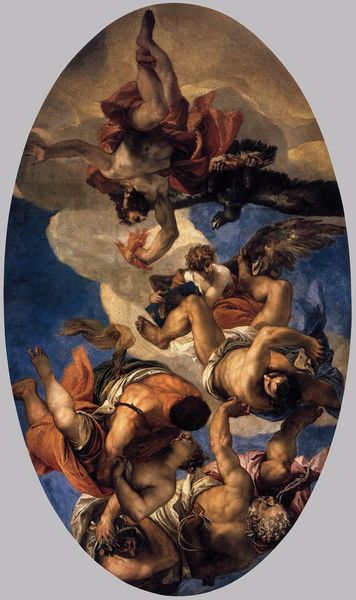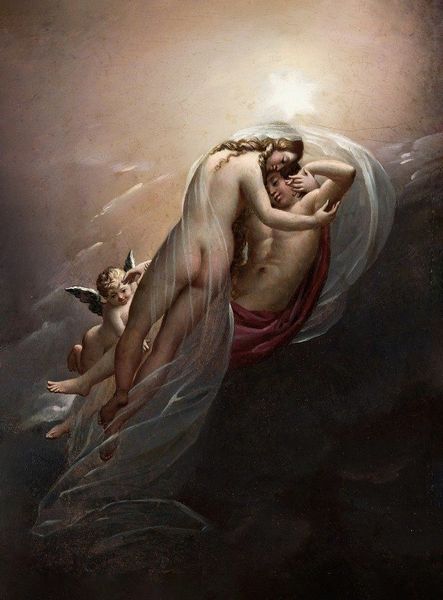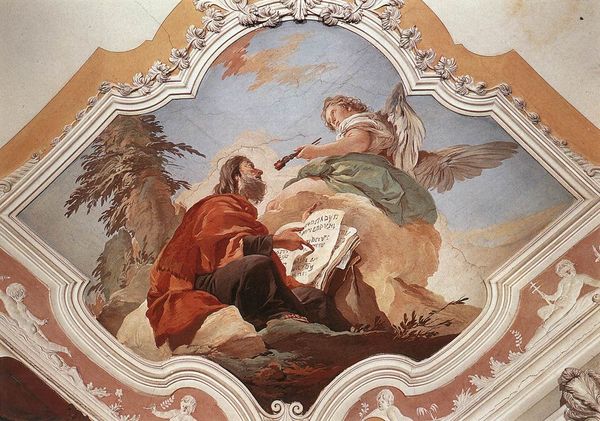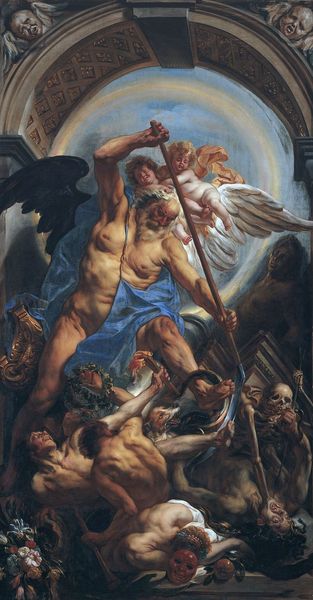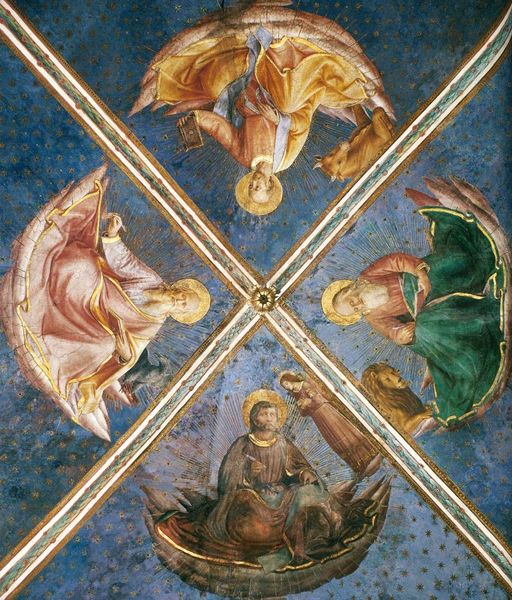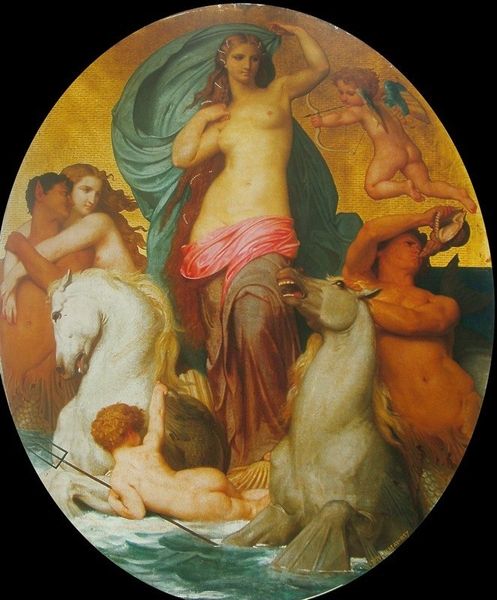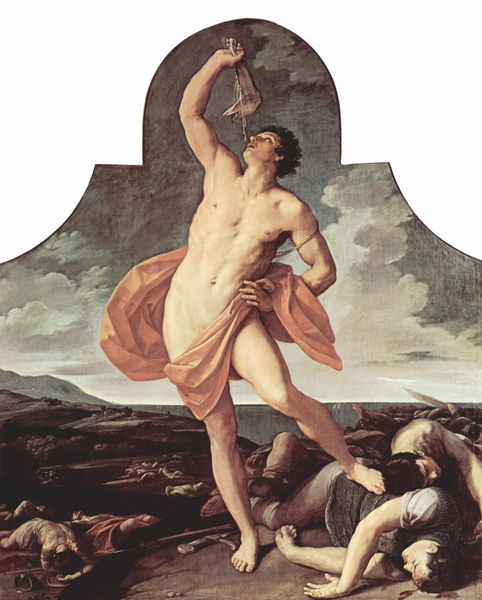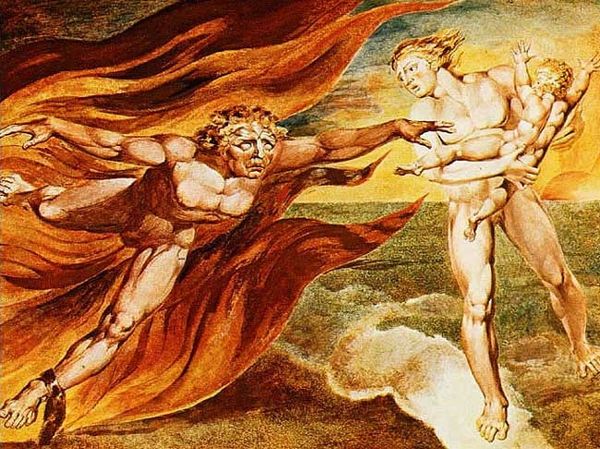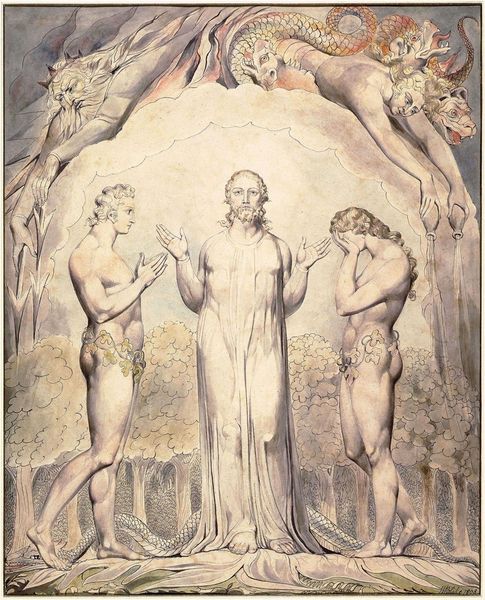
#
natural stone pattern
#
circular oval feature
#
egg art
#
animal print
#
oil painting
#
arch
#
naive art
#
christianity
#
animal drawing portrait
#
watercolour illustration
#
central focal point
#
watercolor
#
angel
#
christ
Dimensions: 221 x 292 cm
Copyright: Public domain
Eugène Delacroix painted "Adam and Eve" in France, around the middle of the 19th century. Its display within the Palais Bourbon places it in the heart of French political life, asking us to consider the relationship between art, power, and morality. Delacroix depicts the moment of expulsion from Paradise, a key moment in the Judeo-Christian tradition. Adam covers his face in shame, while Eve reaches out in despair. An avenging angel casts them out from the garden. Consider the social context in which Delacroix worked: France was a society still deeply influenced by the Catholic Church, but also experiencing rapid social and political change, and, moreover, with the rise of museums and academies, the institutions of art played an increasingly important role in shaping artistic styles and tastes. Art historians can study the cultural and intellectual history of 19th-century France to understand how Delacroix's painting might have been seen in its time. The meaning of art is always shaped by its social and institutional context.
Comments
No comments
Be the first to comment and join the conversation on the ultimate creative platform.
